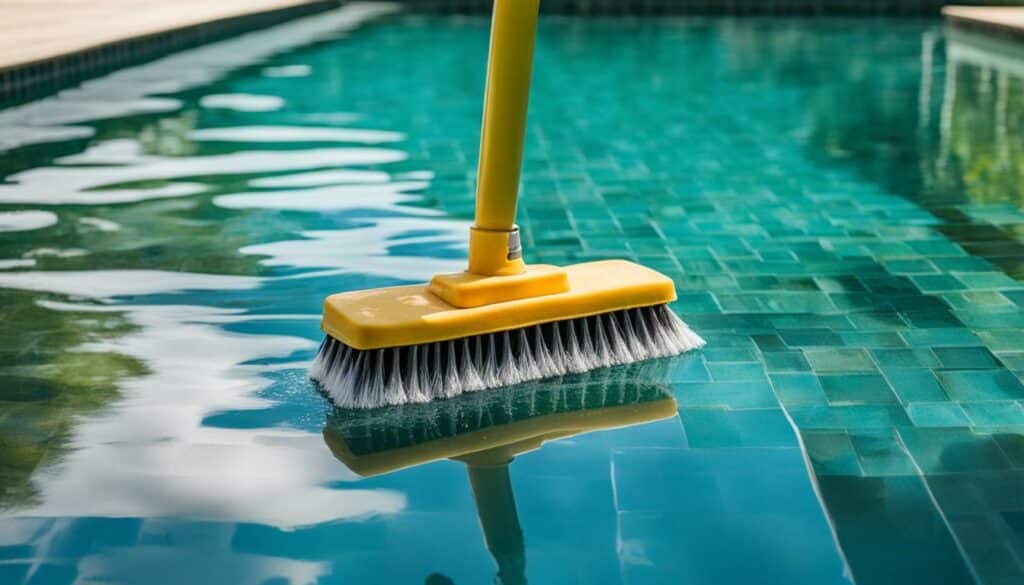As for owning a pool, many homeowners concentrate on the quality of the water and adjacent landscaping, frequently overlooking one key aspect: the tiles. The condition of your pool tiles can greatly impact the aesthetic appeal and general health of your swimming environment. Sadly, over time, these tiles can build up unsightly calcium buildup, grime, and algae, turning your initially sparkling oasis into a dull and unwelcoming space. Managing this upkeep is not merely a cosmetic issue; it can stop long-term damage and costly repairs.
Comprehending why pool tile cleaning is more important than you think for any pool owner is vital. Routine cleaning not only maintains the beauty of your pool but also boosts safety by avoiding slips and falls on slick surfaces. So, how frequently should you clean your pool tiles, and what techniques are most efficient? Whether you choose DIY approaches or utilize professional services, being aware of the best practices can significantly enhance the outcome. In this article, we will explore everything from the best method to clean calcium buildup on pool tiles to the advantages of hiring experts in pool tile cleaning services. Be prepared to take your pool's appearance and functionality to the next level.
Importance of Periodic Pool Tile Cleaning
Keeping the hygiene of your pool tiles is often overlooked, yet it plays a crucial role in the general wellbeing and appearance of your pool. Dirty tiles not only diminish from the visual appeal of your swimming area but can also hold mold, germs, and various unsafe contaminants. Regular cleaning helps ensure that your pool remains a secure and inviting place for friends to experience, eliminating health risks associated with dirty surfaces.
An additional significant reason to emphasize pool tile cleaning is the prevention of costly repairs. Mineral buildup and other debris can cause long-term damage to the tiles and the pool structure if left ignored. By investing in routine cleaning, you can prolong the lifespan of your tiles and lower the need for major restorations or replacements in the future. This preventive approach spares you both hours and money, making your pool maintenance more efficient.
In addition, clean tiles contribute to better water circulation and chemistry. When tiles are free from buildup and grime, they do not impede water flow, allowing for optimal filtration and sanitation. This can produce clear, fresher water and enhance your pool's overall performance. Regular tile cleaning ensures an enjoyable swimming experience and optimizes the functionality of your pool equipment, ensuring a well-maintained oasis in your backyard.
Effective Cleaning Techniques
In terms of preserving the appearance and functionality of your pool tiles, choosing the appropriate cleaning technique is essential. One of the most effective methods for removing calcium buildup is using a combination of vinegar and baking soda. This eco-friendly solution merely eliminates the deposits but also aids to restore the glow of your tiles. Apply site web to the contaminated areas and leave it for a while before scrubbing gently with a gentle sponge or brush. This technique is excellent for routine maintenance and can prevent the need for heavier cleaning later on.
If your pool tiles have significant buildup or discoloration, professional tile cleaning services could be essential. These services often use advanced techniques such as glass bead blasting, which effectively clears away stubborn grime without damaging the tile surface. This method is particularly helpful for homeowners who want to attain a thoroughly clean. Engaging professionals guarantees that the process is performed safely and efficiently, giving you peace of mind that your pool tiles are in expert hands.
For those who lean towards a DIY approach, there are a selection of retail tile cleaners accessible that can be effective against tough stains. When picking a cleaner, verify it is appropriate with the type of tiles you have, as some harsh chemicals can inflict damage. Always comply with the manufacturer's instructions for maximum results. Consistently implementing these cleaning techniques will ensure your pool tiles looking immaculate and help steer clear of costly repairs or replacements in the time ahead.
Preventive Care Tips
To maintain your pool tiles in top-notch condition, regular inspections are crucial. Make it a practice to check for any indicators of wear and tear, such as fissures or discoloration. Early detection allows you to fix issues before they develop into larger problems. Pay close attention to areas where the water jets or return lines contact the tiles, as these spots can accumulate more debris and buildup.
Another crucial aspect of preventive maintenance is ensuring proper water chemistry. Maintaining the pH and alkalinity levels balanced not only ensures a clear swimming environment but also minimizes calcium buildup on your tiles. Regularly testing the water and modifying chemical levels will help prevent long-term damage and help you avoid costly professional maintenance in the future.

Lastly, consider establishing a regular cleaning schedule that entails light scrubbing and rinsing of the tiles. This can be done weekly or every two weeks, depending on how much debris your pool sees. Incorporating this into your regular pool maintenance will make a significant impact, keeping your tiles sparkling and prolonging their lifespan. A little care goes a long way in avoiding heavy buildup and the need for major cleaning services down the road.
